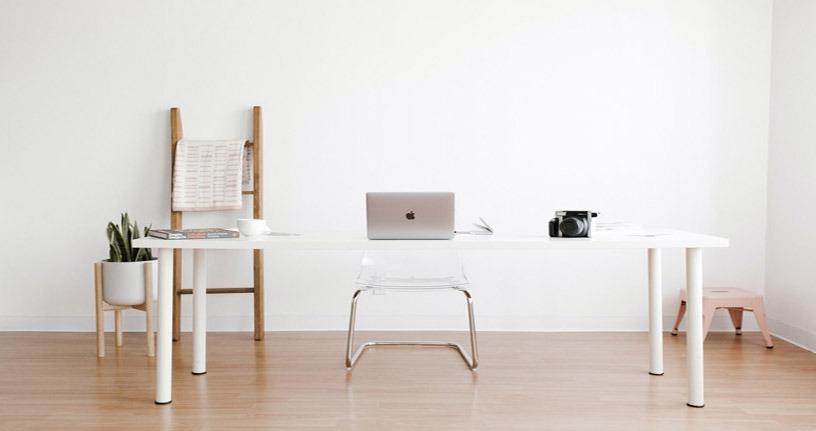How to Declutter Your Life In Minimalist Ways and Live with Less

Simplify your life with practical tips on how to declutter. Reduce stress, create space, and live intentionally. Begin your journey to a clutter-free life now.
Decluttering life and living with less is a transformative journey towards a more intentional and fulfilling existence. By simplifying our surroundings, we free ourselves from the burdens of excess and chaos, reducing stress and making room for what truly matters. It’s about curating a life that aligns with our values, focusing on experiences over possessions, and finding contentment in the simplicity of each day. Whether it’s decluttering physical spaces, digital clutter, or emotional baggage, this path empowers us to live lighter, embrace mindfulness, and savor the beauty of life’s essentials.
“The more you have, the more you are occupied. The less you have, the more free you are.” — Mother Teresa
Excessive clutter is often a cause of stress. It can affect every facet of your life. Clutter can affect your overall enjoyment of life, weigh you down, and in general it invites chaos into your life. So, for minimalist living, it’s important to declutter your life. Clutter doesn’t always mean the excess stuff around your living space. It can be the possessions, ideas, relationships, and activities that don’t bring value to your life. So reassessment of your priorities is important so that you can strip away the excess stuff. Here’s a little guide I made that might help you get started to declutter. There are many areas you can declutter your life, and there’s no reason not to get started today. In this article, you will find 10 effective ways you can declutter your life in minimalist ways.
1. Declutter your living space — The less things you have the less complicated your life will be. We create our own world around us and fill it with items. Things become old and useless with time. Survey your surroundings and get organized. Sort your items in three categories—keep, donate, and throw away. Keep the things that you really need, and throw away or give away old stuff you no longer need. Give yourself some extra breathing room. The more you clear from your living space, the lighter you feel.
Decluttering your living space can be a powerful act of self-care and liberation. By clearing away unnecessary items and organizing your surroundings, you create a physical environment that promotes clarity, peace, and productivity. It’s about letting go of the things that no longer serve you and making room for what truly matters.
A clutter-free living space not only reduces stress but also allows you to appreciate the beauty and functionality of your surroundings. It’s a simple yet transformative process that can enhance your overall well-being and make your home a sanctuary of comfort and tranquility.
2. Think about your clothes — Always try to keep your cloths where they belong. Dirty items should go in the hamper. Go through your closet and start reducing the clutter. Anything of your cloths that you haven’t worn in six months is not worth keeping. Keep only the clothes that you love and use frequently. Throw out or donate unused clothes to someone who might want it.
Think the categories of your cloths that cover all categories of your life. The categories may be Casual Outfit, Classy Outfit for office, sloppy clothes that you like to wear at home, and Yoga or prayer clothes if needed. Select only 3 or 4 sets of cloths for each category.
Consider donating or selling items that are in good condition, and recycle or repurpose those that are no longer usable. Organize the clothes you decide to keep and commit to regular maintenance to prevent future clutter. Lastly, adopt a mindful approach to shopping to avoid accumulating more items than you need.
3. Be free from debt and start saving — Being free from debt is very important if you really want to be a minimalist or declutter your life. You will never feel free if you are in debt. So pay that off as fast as you can. If you’re not in debt, keep it that way. Also think about savings a certain amount of money every month as backup for emergencies. A brilliant idea is to start investing in your own business as an extra source of income instead of just your job. This will make you more financially stable.
Becoming debt-free and starting to save is a pivotal financial milestone. To achieve this, assess your debts, create a budget, and allocate a portion of your income to paying off debts while also saving. Prioritize high-interest debts for faster elimination, and as they diminish, divert those funds into savings accounts or investments.
Breaking free from debt and initiating a savings habit not only offers peace of mind but also sets the foundation for financial security and future opportunities. It’s a journey towards financial freedom that empowers you to take control of your financial destiny.
4. Eat the same meals — Eating the same meals everyday might be annoying and terrible to many people. But eating specific food filled with enough nutritious value is actually just simple. Many famous people who are successful in their health area apply this principle. In this way you can easily know what is coming in your body on a daily basis. Just make sure that the meals contain the nutrition you need. Also think of enough proteins, vegetables, and healthy fats like fish or avocado.
Eating the same meals every day can have its advantages. It simplifies meal planning and grocery shopping, reducing decision fatigue and saving time. It also helps with portion control and calorie tracking, making it easier to maintain a healthy diet and reach fitness goals.
Additionally, repetitive meals can lead to a more consistent intake of essential nutrients. However, variety remains essential to ensure a balanced and diverse diet, so it’s crucial to strike a balance between routine and occasional culinary exploration for optimal health and enjoyment.
5. Stop watching too much TV — How much time do you spend watching TV on a weekly basis? If the answer is 20/25 hours then it means that you are having a second part-time job—watching TV. It’s one of the most low-value activities that waste your time. You can do much more fun stuff than watching TV.
The poor TV programs and stupid ads can make you more depressed. You can escape newspaper ads or Internet ads while you read newspaper or browse Internet. But only TV can force you to watch it’s stupid ads.
Reducing excessive TV watching can have numerous benefits. It frees up time for more productive activities, such as exercise, reading, or spending quality time with loved ones. It can improve sleep quality by reducing exposure to screens before bedtime. Cutting down on TV also encourages a more active and engaging lifestyle, fostering personal growth and mental well-being. By curbing excessive screen time, we open ourselves to a world of opportunities for learning, creativity, and enhanced overall health.
6. Identify what’s important, and eliminate the rest — Days will fill up with time-wasting activities if you aren’t careful. An important thing you need to remember that being productive isn’t just about getting things done—it’s also about leaving things undone. The efficiency and simplicity of your days depends strongly on the elimination of non-essential tasks. So you must take time to identify what’s most important to you, and then declutter as much as you possibly can of everything else.
Identifying what’s truly important in life and eliminating the rest is a profound way to simplify and find clarity. It involves prioritizing your values, goals, and relationships, allowing you to focus your time and energy on what truly matters. By letting go of distractions and non-essential commitments, you create space for personal growth, meaningful connections, and a sense of purpose. This approach promotes a more intentional and fulfilling life, where your actions align with your deepest desires and values, leading to greater happiness and satisfaction.
7. Prioritize what’s most important — Life without goals is like a race without a finish line. So if you don’t have goals, start setting goals for your life right now. Make a list of your life goals and priorities. See the list everyday and remind you what to focus on today. Focus only on the most important parts of your life. Prioritize what’s most critical part in your life right now. Determine the main things you need and eliminate the things you don’t need.
Prioritizing what’s most important is a key to success and fulfillment. By identifying your top priorities and focusing on them, you can make the most of your time and resources. This approach allows you to achieve your goals more efficiently and make meaningful progress in areas that truly matter to you.
Prioritization also helps in reducing stress and overwhelm, as it enables you to manage your responsibilities with greater clarity and balance. Ultimately, aligning your actions with your top priorities is a powerful way to lead a purpose-driven and satisfying life.
8. Spend quality time — End of the day; ask yourself—how did you spend your time today? What did you do on your goals? It’s important to know where you’re spending your time on. You can do much more fun stuff than spending time on low-value activities like watching TV or just passing time with your friends who are holding you back. Time is one of the most valuable assets you have. So you have to ensure the optimum utilization of your time.
Spending quality time with loved ones is essential for nurturing relationships and creating lasting memories. It goes beyond mere presence and involves active engagement, deep conversation, and shared experiences.
Quality time strengthens bonds, fosters understanding, and enhances the emotional connection between individuals. Whether it’s with family, friends, or partners, dedicating time to meaningful interactions is a cornerstone of building strong, fulfilling relationships that provide support, joy, and a sense of belonging.
9. Declutter your friendships — It’s important to know with whom you spend your time. You should nurture the positive relationships, relationships that make you feel good; and get rid of negative relationships, relationships that are holding you back. Spend more time with positive people who help you grow and make you feel happy. Also you should get rid of toxic people who only drain your energy.
Decluttering your friendships means evaluating the relationships in your life and focusing on quality over quantity. It involves letting go of toxic or one-sided connections that no longer serve your well-being or personal growth. By doing so, you create space for meaningful, supportive, and mutually beneficial friendships to flourish.
Decluttering your friendships can lead to a more fulfilling social life and reduce emotional baggage, allowing you to invest your time and energy in those relationships that truly enrich your life.
10. Reconsider your routines — Many of us do not have any set routines. Doing daily tasks haphazardly without any set routines never make you happy and productive. It leads to chaotic days and a drop in productivity. It’s helpful to write down all of your daily tasks and try to follow it. Having a set routine will help your days more productive.
Reconsidering your routines is an essential step in personal growth and efficiency. It involves taking a fresh look at your daily habits and assessing whether they align with your goals and priorities. By making thoughtful adjustments, you can optimize your routines to be more productive, healthier, and aligned with your values.
Reevaluating your routines allows you to break free from stagnation, create positive changes, and ensure that your daily activities contribute to your overall well-being and success.
Conclusion
Incorporating minimalist principles into your life to declutter and live with less can be truly transformative. By simplifying your surroundings and choices, you can unlock a newfound sense of freedom, clarity, and purpose. Embrace the process of letting go of excess, prioritizing what truly matters, and savoring the beauty of a minimalist lifestyle.
Remember that it’s not just about having less; it’s about experiencing more of what brings you joy and fulfillment. Start your journey towards a clutter-free and more meaningful life today, and discover the incredible impact that living with less can have on your well-being and happiness.
What is minimalism, and how does it relate to decluttering your life?
Minimalism is a lifestyle that emphasizes simplicity and intentional living by owning and consuming less. It’s closely tied to decluttering because it involves reducing excess possessions and distractions to focus on what truly matters.
Why is decluttering important for living a minimalist lifestyle?
Decluttering is a critical step in minimalism as it helps you remove physical and mental clutter, creating space for intentionality, clarity, and a more meaningful life.
What are some practical tips to declutter your home in minimalist ways?
Start by categorizing your belongings, then go through each category methodically, keeping only items that bring you joy or serve a practical purpose. Consider the “one in, one out” rule for new acquisitions to maintain a clutter-free space.
How can living with less impact one’s overall well-being and happiness?
Living with less can reduce stress, increase contentment, and improve focus. It allows you to allocate time and resources to experiences and relationships that truly enrich your life, leading to greater overall well-being and happiness.
What are some challenges people may face when transitioning to a minimalist lifestyle, and how can they overcome them?
Challenges may include sentimental attachments to possessions and societal pressures to accumulate. Overcoming them involves practicing mindfulness, setting clear priorities, and gradually implementing minimalism to find a balance that works for you.






